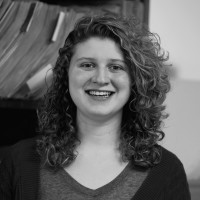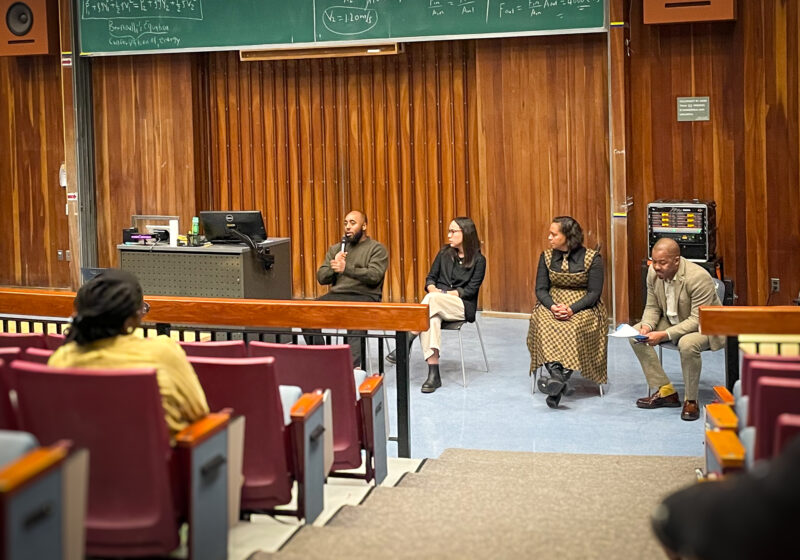Juniors Erinmarie Byrnes and Dan Matthews have campaigned for Students’ Association (SA) President and Vice President with a platform critical of SA’s public relations (PR) team, like many of the candidates in this year’s race.
They claim that the team failed to “publicize everything from meeting minutes to Library forums” due to “the poor organization and management of our PR team” and promise to “work to bring back Bathroom Journalism and develop new strategies to publicize our events and make students aware of what SA Government has accomplished.”
But junior Saad Usmani, the current Executive Director for Public Relations and write-in presidential candidate, sent the Campus Times proof of the PR team’s continued use of Bathroom Journalism, including published issues from November and December 2015 and February and March 2016.
Sophomore Caleb Krieg, former Journalism Manager for the PR Team and current presidential candidate, said he created the Bathroom Journalism pages from this semester with Sofia Salen, noting that he “worked on it [and designed it] completely,” directly contradicting the points made in Byrnes and Matthews’ platform.
And on SA’s Facebook page, which is run by the PR team, scores of SA events from this academic year were publicized, including the library forums mentioned by Byrnes and Matthews’ platform.
Salen—a member of the PR team and recent presidential candidate—spoke to the team’s effort to let students know about the libraries forums.
“Library Forums were very well publicized,” she said. “I attended most of them along with many others who were not always members of SA government.”
Byrnes and Matthews’ seemingly unfounded claims about SA PR and SA Government transparency are common to several other tickets in the race—including Krieg and his running-mate junior Nico Tavella’s.
On their website, Krieg and Tavella plan to introduce, in an app, several PR initiatives that already exist.
“Some of the features of the future of SA,” they claim, will include a database of Senate legislation, a calendar of SA events, a directory of administrators, a direct-message system, and cabinet updates.
A database for Senate legislation is located here.
A calendar for SA events can be found both on the organization’s Facebook page and on its Campus Community Connection page.
A faculty, staff, and student directory is accessible here, and students using University email accounts can simply begin typing a name when addressing an email to see a directory as well.
There is a senator contact form—featuring a directory of current senators—here.
And, there is an SA blog with various updates here.
Like Krieg and Tavella, candidates Vito Martino and Lance Floto plan to begin a blog published by the SA President and Vice President to keep students updated on “current legislation, meetings with administrators, and all things SA.”
The two juniors’ platform also claims that “by reading the blog, students will not only know what is going on, they will be able to send [us] messages sharing their opinions and concerns.”
As stated, this blog already exists, and their plan for a message system mirrors the pre-existing senator contact form and its presidential counterpart.
Martino and Floto also criticize the lack of transparency in SA’s meeting minutes. Many Senate committee meetings are executive sessions and thus not open to the public.
“This creates an environment in which students cannot keep members of SA accountable for their actions and decisions,” their platform reads.
But when asked about the possibility of publicizing Senate committee meeting minutes, Salen said that “the issue at hand is technically all committee meetings are executive session. So many minutes are unable to be posted.”
Speaker of the Senate Ethan Bidna defended the use of executive sessions in an interview, saying, “Anyone who has attended a single Senate meeting knows that you can find out what each committee is doing, as it is on our agenda each week.”
Bidna emphasized that each committee as a body retains the right to publicize, and called it “parliamentarily dubious and a breach of the separation of powers to suggest otherwise.”
The minutes from the Monday SA Senate meetings are readily available on the SA website, although it has not been updated since December of 2015.
But according to Usmani, this was only because the web manager of the website had temporarily quit—just one of the many upsets the PR team has faced over the course of this year.
With the new SA Bylaws adopted last spring, this year was the first in which an Executive Director of Public Relations was included in the President’s Cabinet. There was no transition period for Josh Anes, the original Executive Director, or Usmani, who served as the Associate Director at the time.
The team consisted of barely three or four people when it had consisted of approximately 25 the year before.
Anes resigned after two months, citing general dissatisfaction, and Usmani was tapped for the top position, still without any transition material.
Cecile Anand, who helped manage the PR team last year, came on as Web Master, but then resigned from her role. The team then hired Kevin Gerami, who had the technical skills required for the job but had never previously held an SA position.
With further help from Salen, the team grew to 10 people, but the large number of tasks—including requests from SA officials and creating the graphics and blog posts required for a social media presence—continued to strain the team’s resources.
“Saying that we failed to publicize everything is blatant disrespect for the PR team which has overcome various leadership hurdles and transitions this past year,” Usmani said in his response to Byrnes and Matthews’ critical platform.
Each of the presidential candidates, including Salen and Krieg, both members of the PR Team—though Krieg has since resigned as Journalism Manager—and Byrnes, who, as Executive Director of Academic Affairs, works in the same branch as Usmani, have criticized SA’s transparency through public relations.
Usmani said that not one of the candidates has reached out to him about these apparent issues.
“I would expect a candidate that highlights PR as an issue at least talk to the guy running it beforehand to see how we can do better,” he said.
He continued, “I completely realize that on the surface level PR was down from last year, but there really is so much that needs to be taken in context. If candidates are citing transparency problems, they need to look elsewhere. Not PR. Look out the Senators that have been burnt out [and] dropped out from their positions. Transparency problems stem from the organization itself and its members.”
Krieg commented on the overall cohesiveness of SA as a member of the PR team, and said he felt like an “outlier.”
“I feel like no department is connected to another,” the SA Presidential hopeful said. “In PR, I felt separated from everyone. I can’t speak for other people, but I know that our department was so separate, PR needs to be connected.”
Clarification (4/3/2016): A previous version of this story said that Krieg and Tavella “plan to introduce several PR initiatives that already exist.” We have clarified this sentence to indicate that they plan to introduce these pre-existing programs in a new app.
Correction (4/3/2016): A previous version of this story suggested that Bidna had criticized a specific campaign. Actually, Bidna made remarks that, in context, called into question the platforms of some candidates, but did not opine on any campaigns.





